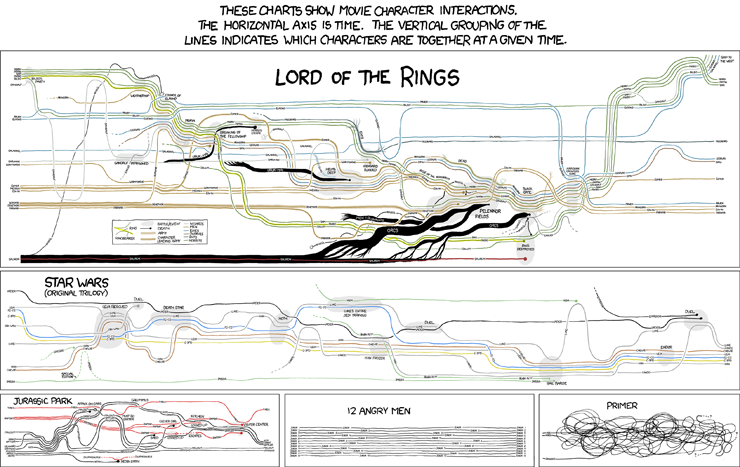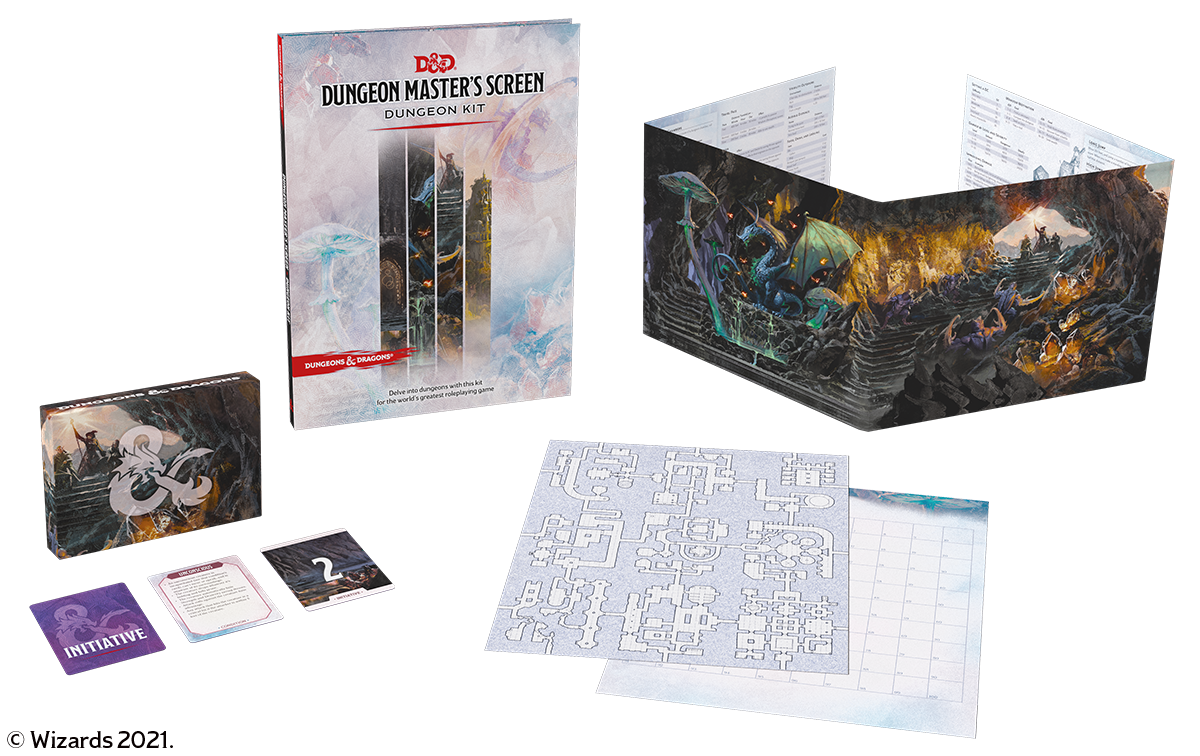Plots & Pants: The Great Equalizer of the Game Mastering
‘Spirited Away: Live on Stage’ is a Bold, Stunning Adaptation of a Beloved Classic
May 2, 2023Disney Villains Get Gorgeous New LEGO Set in Their Honor
May 3, 2023Plots & Pants: The Great Equalizer of the Game Mastering
https://blacknerdproblems.com/plots-pants-the-great-equalizer-of-the-game-mastering/
One of the most popular writing taxonomies that has arisen over the years is the “Plotter versus Pantser” dynamic. It’s this understanding that writers tend to either be meticulous planners that create a solid foundation and have a clear direction of where everything is headed from the beginning, a.k.a. a plotter…OR…they tend to firing from the hip, writing off the cuff, and otherwise just flying by the seat of their pants, hence the name pantser. And like any binary taxonomy, very few writers actually strictly adhere to a particular philosophy and then to be more “Plansters” or as I like to refer to it “Planters” (an ironic moniker given that I have whatever the proverbial opposite of a green thumb is) where a framework is created and then you sort of see what happens.
That being said, different mediums do tend to be easier for a plotter or pantser. Traditionally, a plotter tend to do well in longer, more structured format. Fiction and nonfiction in particular tend to benefit from having a set structure, a well understood and defined outlook of the story being told or reported. Screenplays, teleplays, scripts also tend to attract plotters as the famous Chekov’s Gun often reminds us. However, that’s not necessarily a hard and fast rule. Short stories for example may not need as much of a coherent framework, and a writer can riff through them rather than painstakingly plotting every detail. Something like National Novel Writing Month (NaNoWriMo for short) can benefit from a having a plan, but in the marathon of getting words out, it eventually almost always devolves into a race for word count and you’re just going.
Similarly, mediums like sketch comedy, freestyle, and poetry lend themselves to a pantser mentality, a more spur of the moment, turn of phrase, flow state type of energy. Improv is probably the prime example of pantser mentality as the only thing to work off of only just came into existence the moment before. But even these types of formats have rules that guide, and poetry, in particular, is notorious for having a stringent form where sometimes you can just happen into a perfectly iambic pentameter of a sonnet, whereas other times you must reverse engineer a sestina.
All of this is to say that nothing has quite made me appreciate both schools of thought quite like having to Dungeon/Game Master for a group of players who have their own method to the madness.
For those not versed in the tabletop space, a Game Master (referred to as a Dungeon Master specifically in the context of Dungeons & Dragons and a couple up fantasy TTRPGs) is a person (or on occasion persons) who basically conducts the general events of your typical role-playing game. They serve as god, narrator, moderator, referee, and every single non player character that comes into existence of their own volition or of the player’s volition.
Before 2009, I was very much convinced that I was a plotter. Despite a couple of successful NaNoWriMos under my belt, my “joy” so to speak involved developing extensive timelines that spawn eons and generations, weaving an intricate web of characters and events that would eventually culminate in a grand reveal, an epic confrontation that would have a stunningly satisfying resolution.
Appropriately in 2009, I was introduced to both tabletop RPGs in proper and also slam poetry, and thus the pantsing ideology starting seeping into my general mindset. Of course, most GMs start out of players (although shoutout to the brave souls that learn how to GM for the sake of their friend group) and when you’re a PC, you learn to push the boundaries fairly quickly in a multitude of directions. The collaborative nature of TTRPGs is something truly special, because you have much more direct agency in the events that are happening than any other medium. RPGs exist in the theater of the mind, and while they are rules and restrictions, ultimately any of those can be overridden by the Game Master.
And at the crux, the Game Master has to be a practitioner of both plotting and pantsing. The GM has to be able to create a fully fleshed out world and understand the general flow of the world. They have to have a larger plot in mind and an understanding of the casual actions happening. GMs spend so much time building a set of roads and possibilities for the players, while keeping track of various items, locations, and NPCs. And then all of that planning immediately gets scrapped because people are unpredictable as hell and once the derailment happens, you kinda just have to go along with it.
The first ever game I GM’ed for was supposed to be a prison based one-shot. There was a panopticon, there were secret tunnels, and a motley crew of NPCs that would help the party start a riot. But because I foolishly did not start the players in the prison, I found myself in a situation where none of the PCs took the bait and instead, they started a chicken farm empire that overtook the local economy. And it was a fun session. A different session than I had planned but it was very much at that moment that I realized that it was better to build a sandbox than set of train tracks.
Throughout the years, I’ve been surprised by my players and as I player I’ve surprised my GMs. In fact, I have a standing policy to warn every GM that if they put an airship in the campaign, my character will successfully manage to commandeer that airship, and I’m proud to say that I have a 100% success rate on that threat and have forced no less than 2 GMs to completely change the nature of the campaign because of this fact (the third was prepared since they believed me).
And I’ve also been on the flipside of that. Most recently, I tried to get two of my friends to do a simple train heist that eventually devolved into:
- Them buying ketamine from some stable boys
- Telling the band of nomads who they never met before the entirety of the grand conspiracy at the heart of the campaign
- Threatening to kidnap 1-3 children
- Slapping healing into a hostile friendly NPC
- Making it canon that cutting off fingers was punishment for failing in Tiefling culture.
The warning I’ve repeated to every new GM who listens is that if you give your party a fork in the road on the cliffside, you should also be ready for them to jump off the cliff.
But the GM is a unique writer-ly profession that needs both the skill of plotting to keep players engaged over the long term, a keen understanding of motivation and reward, and also the skill of pantsing to respond to the utterly inane @#$%^& that players are want to do because in a game where players have full agency, they will exercise full agency in ways that you will never expect. And if you take nothing else from this, may I offer two things:
- Thank your GM for putting in countless hours lovingly crafting a set of new NPCs only for your party to love a random citizen who after being given a name was now their number one priority
- Give TTRPGs a chance to bolster both your plotting and pantsing skills. While GMs probably utilize both skills extensively, even players get a chance to do plot/pants.
Whether you see yourself as a plotter or a pantser, just remember that those designations are more ideological guidelines than hard steadfast lines much like alignment, although that’s a different article for a different day.
Want to get Black Nerd Problems updates sent directly to you? Sign up here! Follow us on Twitter, Facebook, Youtube, and Instagram!
The post Plots & Pants: The Great Equalizer of the Game Mastering appeared first on Black Nerd Problems.



